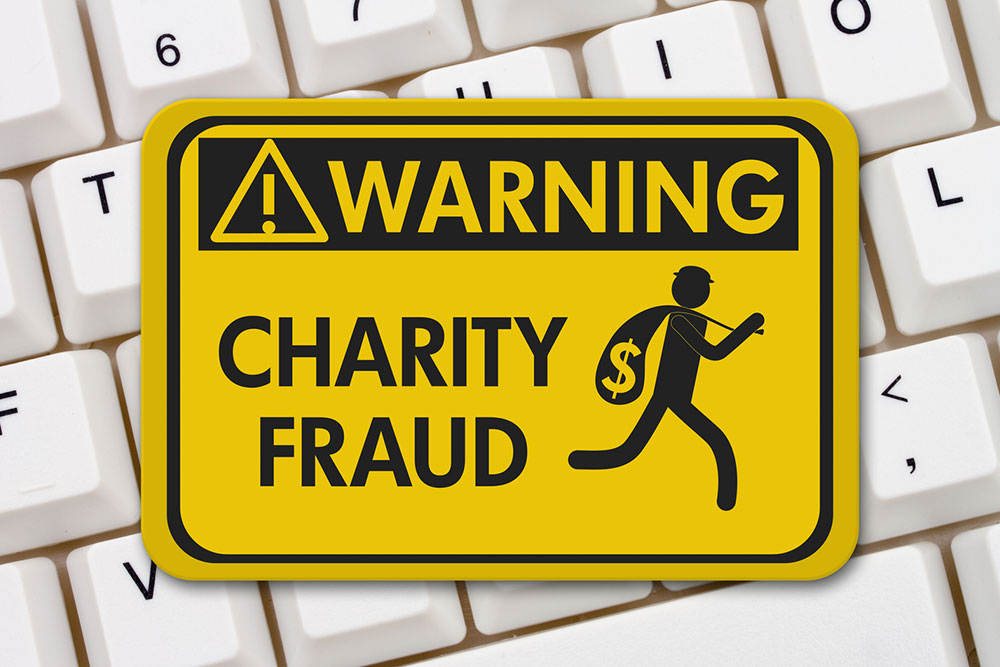7 clear indicators of charity scams

Donating to charity is a humble act that can reward one mentally and emotionally. One can support a charity through cash or kind, including giving clothes, food, and vehicles for transportation. However, it is important to be careful while donating, as scammers may try to deceive one into donating money to a fake charity. Therefore, one must look for signs of a charity scam before donating. Below are seven such signs to watch for.
Lack of charity details
An organization that refuses to provide detailed information, such as its mission statement and operational costs, might not be the right place to invest. If approached about donating online or in person, one must ask questions, including the fund’s purpose and the organization’s tax-exempt (EID) number. One could also inquire about the location of the charity’s headquarters and the percentage of donations directed towards the program.
A pushy volunteer
Several scammers use high-pressure tactics to compel people to donate to a fake charity. Some may even manipulate donors into feeling guilty for not donating. On the other hand, a reputable charity will always want donors to feel good about their contribution and will give several reasons and time for one to decide. A simple way to avoid falling prey to scammers is by doing a quick internet search for the organization’s name alongside terms like “review,” “complaint,” or “scam.” Any red flags mean it’s probably better to donate to another organization.
No proof of work
One can detect charity fraud by asking for proof of work. This could include images and videos of the organization’s ongoing non-profit work. Additionally, an individual should also ask specifically where their funds are being directed. If the charity cannot produce this information, it is likely fraudulent, and one should report it to relevant authorities immediately.
The use of alternate payment methods
Scammers may ask individuals to donate cash, gift cards, or wire services. The alleged organization might also direct the donor to use unverified apps to make their payment online. This is a common sign of a charity scam. Such modes of payment are usually untraceable, which means the donor will never get the money back, and neither will it go to the less fortunate. One should also be vigilant about organizations that promise guaranteed sweepstakes winnings in exchange for one’s contribution. The law indicates that one is not required to pay or donate to be eligible to win a sweepstakes. If one believes a charity is legitimate, one should send funds directly via the organization’s website or to the physical mailing address.
Asking for personal information
An individual may come across an organization that asks for personal information, such as one’s Social Security number, bank account number, or other private information. It is important to note that non-profit organizations do not require such information when one donates. So, if faced with this situation, one would be right to be suspicious as the charity might be fraudulent. Apart from avoiding donations to a fake charity, one could also try to get as much information about the scammer as possible, including the name, phone number, and details about where the money should be sent. Following this, the individual should file a complaint with the Federal Communications Commission (FCC). If one believes that the scammer is operating in the area, one could contact local law enforcement.
Multiple spelling mistakes
It is possible to find a few typos on a legitimate website. However, a genuine organization will do its best to ensure its documents, including those made public, are as clear and error-free as possible. On the contrary, a scammer may not always pay attention to these details when designing a website or flyers. Therefore, if the materials provided by a charity look less than professional, one should conduct some research to verify its legitimacy.
No accreditation on accountability websites
Top charities ensure their client base is protected and safe when donating. Therefore, they register themselves with various organizations, such as the Better Business Bureau’s (BBB) Wise Giving Alliance, which holds them accountable when it comes to accepting donations and using the funds for the appropriate cause. If one cannot find a charity listed with such organizations or finds the non-profit is not listed favorably, the individual should avoid donating.